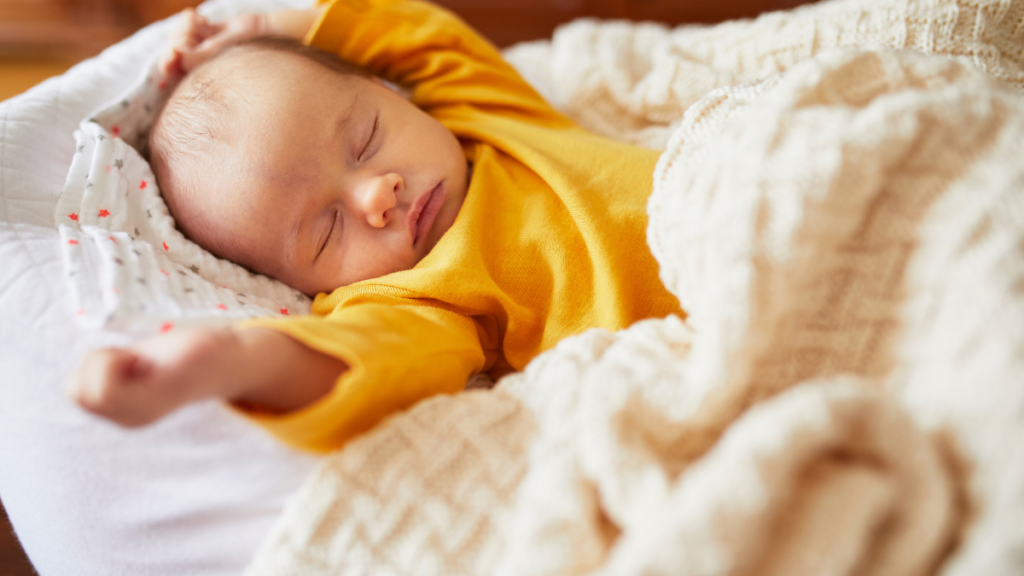
Sleep like a baby… well what if your baby isn’t sleeping?! Most newborns (0-3 months old) sleep on average 16-18 hours a day. However, sometimes getting this sleep can be a challenge. Here are my top tips to help your little one (and you) get some much-needed rest.
Newborns love to snuggle and having lots of skin to skin with your little one has so many benefits to their sleep. Newborns often sleep longer and deeper when being held. Don’t worry about forming any “bad habits”-you can’t spoil a newborn!
A hungry baby will have a hard time settling in to sleep and are more likely to wake frequently. When feeding (from breast or bottle) ensure they are actively feeding and getting a full feed during each session. Aim for 8-12 feedings in 24 hours. If you are having difficulties with feeding be sure to reach out to your healthcare provider or lactation consultant.
This is a great option to help your newborn get some sleep and some fresh air. Try naps in the carrier, stroller or car seat. The motion is a great tool for getting some shut eye!
Newborns sleep in 2 phases- active and quiet sleep. During active sleep your infant might grunt, wiggle, kick and flutter their eyelids. It looks very ‘active’ and is often mistaken as being awake.
It is normal that your little one needs assistance to fall asleep. This might be in the form of rocking, bouncing, shushing or all three of these at once!
Newborns love to suck. It can be very comforting and helpful in settling your little one. Try offering a pacifier once feeding is well established.
Swaddling is a great tool to soothe your newborn and is safe if done correctly. Babies have a natural startle reflex that can disrupt sleep. Swaddling is a great option to help with this.
Newborns can only stay awake for short periods of time before they become overtired. Typically this is between 45-60 minutes before needing to sleep. Watch that clock and look for sleepy cues to ensure they are getting to sleep on time.
Unlike older babies that have bedtime around 7pm, newborns typically aren’t ready to settle in to sleep until 9-10pm. These evenings can bring on fussiness and crying so try using lots of skin to skin, cluster feeding and a carrier for hands free snuggles.
If you notice your newborn gets fussy in the evening and has a difficult time sleeping, try decreasing the amount of stimulation. Keep the lights dim, avoid loud music or use white noise and limit distractions.
Support might look like a family member holding your baby so you both can nap or it might be in the form of hired help. If you feel like you are needing help, please don’t hesitate to reach out. Sleep is vital to both you and your baby!
Those first few weeks with your new baby are so beautiful and precious but can also feel very challenging. Be sure to utilize family, friends and community resources for support. It may not feel like it but you will sleep again! You’ve got this!
© 2023 All rights reserved Baby & Toddler - part of parent promotions